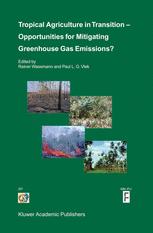

Most ebook files are in PDF format, so you can easily read them using various software such as Foxit Reader or directly on the Google Chrome browser.
Some ebook files are released by publishers in other formats such as .awz, .mobi, .epub, .fb2, etc. You may need to install specific software to read these formats on mobile/PC, such as Calibre.
Please read the tutorial at this link: https://ebookbell.com/faq
We offer FREE conversion to the popular formats you request; however, this may take some time. Therefore, right after payment, please email us, and we will try to provide the service as quickly as possible.
For some exceptional file formats or broken links (if any), please refrain from opening any disputes. Instead, email us first, and we will try to assist within a maximum of 6 hours.
EbookBell Team

4.0
46 reviewsProduction from tropical agricultural systems will need to increase to satisfy the rising food demand of an increasing population coupled with changes in consumption patterns. At the same time, the agricultural sector is a significant source of greenhouse gases (GHG) in many developing countries, which can be attributed mainly to land-use change and methane emissions from rice and livestock. But how can we reconcile less GHG emissions from tropical agricultural systems while increasing productivity?
Due to the interactive nature of these issues, this book is compiled of articles on natural resource management, as well as the socio-economic aspects of GHG mitigation. The scope of mitigation options in tropical agriculture is discussed for three different activities: (a) agroforestry; (b) rice-based production systems; (c) pasture/animal husbandry.
Agronomic solutions alone will not be sufficient, as the institutional and economic frameworks within which farmers operate dictate whether a recommended agronomic management practice is acceptable. The prevention of deforestation, and the re-forestation of degraded land, could become key elements to national climate protection programs of some developing countries. Alternative management practices in rice-based and pasture systems may offer win-win options to reduce emissions and improve resource-use efficiencies.